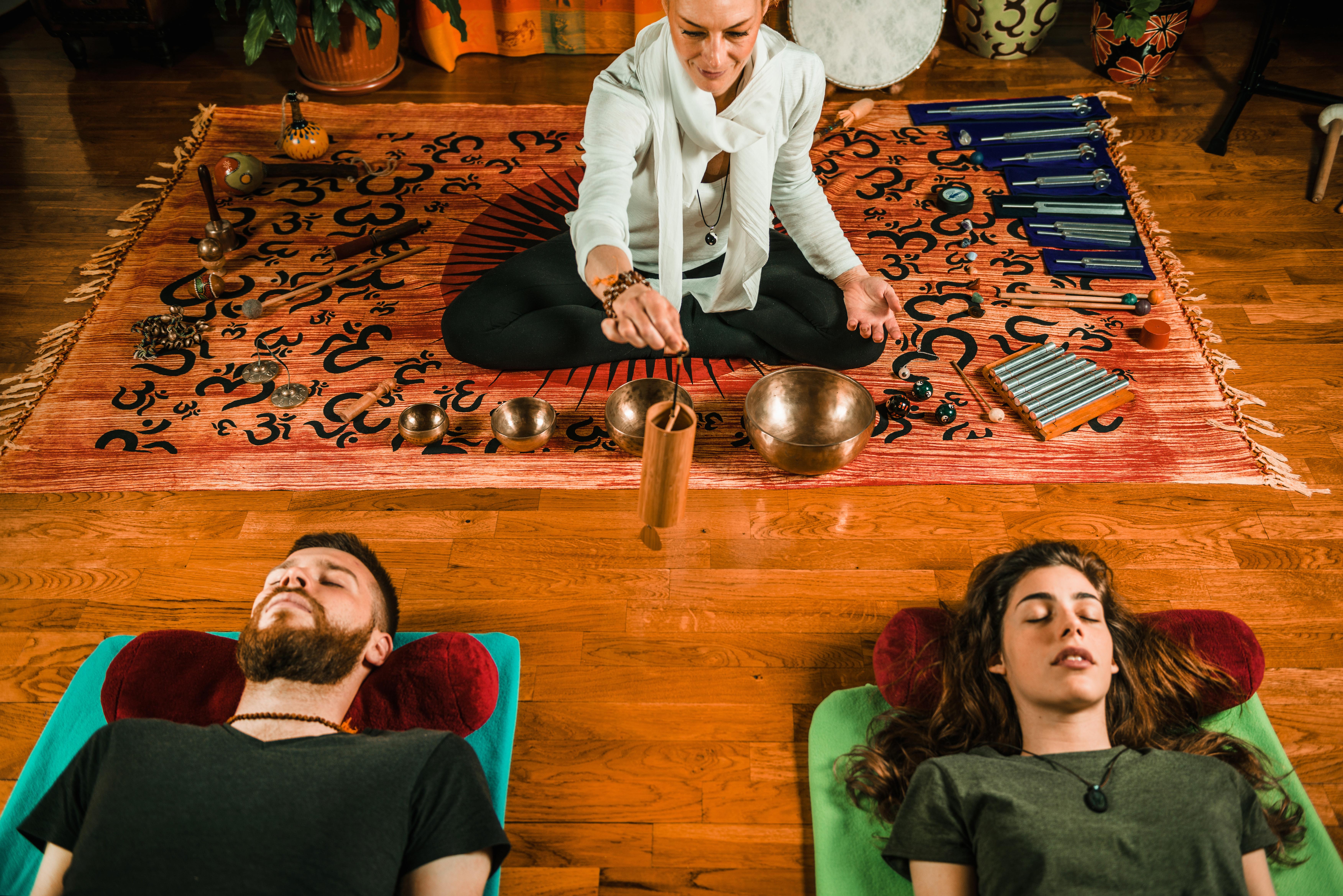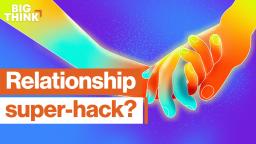BILL NYE: Why are we empathetic? Just consider what a tribe would be like, a tribe of humans, would be like without empathy, without ability to feel what someone else is feeling, without ability to see it from another person's point of view. You probably wouldn't be a very successful tribe. You wouldn't take care of each other. You probably wouldn't divide up tasks. You do this and I'll do that. I know that's hard for you, I'll do this. Well, I'm good at this. I know you're good at that, so you do that and I'll do this. I mean, imagine a tribe without empathy. So my claim, which is extraordinary at first, is not only are size and shape determined by the process of evolution but so are our feelings, and empathy is part of that. Our ancestors without empathy were not as successful.
ALAN ALDA: I find, and I think other people who have studied empathy have found that there's more patience associated with empathy. This is an amazing thing. I find other people less annoying. Isn't that's funny? Because I get a little more empathy about what they're going through, or what I think they're going through, or what I can hear from things they say. And instead of being annoyed by them, I think I think I know where this is coming from and it explains it, and just getting the explanation of what might otherwise be annoying behavior or an annoying thing they're saying, the annoyance kind of evaporates. It's not that empathy is making me a better person, it just gives me a little more patience. So in that regard, it probably does make you a little, a little easier to get along with. But I noticed when I get more empathic my voice gets more intimate. My face is more welcoming. And the funny thing is, I think I see that happening on the person I'm talking to. I think they're responding to what's happening to me. And I'm getting from them a more relaxed tone, a more relaxed, accepting visage. This strange thing about empathy is as valuable as it is, we tend to lose it. It tends to evaporate.
It's very easy to lose your touch in making contact with other people. I see it happening to me. I see it happening to other people. So I thought, is there something I can do on my own that would build empathy and keep my empathy thermometer at a high enough temperature? So I started experimenting on myself. I love to experiment on myself. And I thought, okay it has something to do with reading emotions. So why don't I, as I walked down the street as I go into a restaurant or talk to friends, why don't I try to figure out what they're feeling? And maybe it will be really good if I name the feeling. And I was talking to a psychologist about this and he said, "You came up with this by yourself?" I said, yeah. He said, "I'd like to study that." So he did a study where he had people doing this, during the day for a week. He gave them a standard empathy test at the beginning of the week. And at the end of the week, he gave them another empathy test to see if their scores in empathy would go up by doing this exercise. And he had other things they did to control variables. And what was interesting was not only did their scores go up, the more they did it so that the people who only did it twice didn't go up very much. But the people who did it a hundred times during the week their scores went up considerably. Not only that, it wasn't just naming the emotion that they thought they saw in the other person, it was just noticing the other person. Noticing your hair, noticing your eyes. What color are your eyes? It's amazing how long, now just think about this the next time you're talking to somebody. How long do you talk to somebody you've just met before you really notice what color their eyes are? What shape is their eyebrow? We don't notice one another nearly as much as we think we do. And those people who noticed the other people got higher scores in empathy at the end of the week. And I found it's built up my empathy.
DANFUNG DENNIS: You can look across species of different animals and they exhibit empathy. It's something that's not unique to us. And it's something that we can foster and cultivate. We can train, we can improve it, and VR can start to do that. I can place people into worlds that they may never otherwise see, and experience something firsthand in a way that is very different than watching a film. And you could see this as, potentially in the future, an interactive layer in the experience in which you can reach out, you can pull a remote, and you're donating directly to someone that is in need. And so this interactive experience in which you're training yourself to emotionally resonate, training yourself to take an action. This will carry on within you in your mind and your body after that headset has been taken off. So this ability to, I think, improve ourselves to become a more empathetic and compassionate society is what I hope we will use this technology for.
PAUL BLOOM: I actually think for many relationships, empathy gets in the way. So think about what you want from a doctor or a therapist. You want them to understand you. You want them to care about you, but do you want them to feel your pain, feel your suffering? On the one hand if they do so, they'll be exhausted. They'll suffer from burnout. If a therapist sees a series of patients for 50 minutes each day, and she feels their depression, their anxiety, their fear, their anguish, she wouldn't make it through a week. But more than that, it would make them less effective at what they do. Think about what you want when you see a doctor and you're very anxious. Do you want the doctor to be anxious? No, you want the doctor to respect you, to understand you, to listen to you, to be concerned about you, but not to echo your anxiety or your fear. Certainly for a therapist. If I go to see my therapist and I'm deeply depressed, I don't want her to get deeply depressed. Now we have two problems. I have me and I have her. I want her to look at me with that therapist look and say, "So how does that make you feel?" I want her to have some distance from me, so she could set herself to solving my problems, and to providing a more realistic perspective.
ALDA: Part of the theory of empathy is that you understand what the other person is feeling because you feel it yourself. You recognize the feeling in yourself and that gives you an understanding of what they're going through. But if you sink into that feeling and get lost in it, and if it begins to rule your end of the communication, then it's no longer a tool, it's something that's working against you. You've gotta have possession of your own tools.
BLOOM: I don't doubt that empathy plays some such role, but I think we tend to overstate it. I think when we think hard about what other people need, what it takes to be a good person, a good friend, a good parent, what really matters is understanding and compassion. But empathy often gets in the way. I make a distinction between empathy and compassion. Now, a lot of people think the terms mean the same thing and it's not an argument of words, you could use whatever words you want. But psychologically, there are two different processes. One is what I've been calling empathy, which is you're suffering, I put myself in your shoes, I feel your pain. And that has all sorts of effects. Most of them bad, I would argue. But a second distinct process is compassion. Where I care about you, I care about your welfare but I don't necessarily feel your suffering. Now you might say, well, that's just a verbal difference, so how do we know such a compassion exists? But there's some really cool research exploring this. And actually I got into this because I was at a conference in London and I bumped into Matthieu Ricard. He was hard to miss—long saffron robes, a beatific smile, the happiest man on earth. And I got to talking to him and he asked me what I was up to. And I told him that I was against empathy. And to me that felt kind of awkward, but I thought, you know telling a monk against empathy, but he said, "Oh, empathy, of course you should be against empathy." And he began to tell me about his research. And then I realized there's a body of research, neuroscience research, that distinguishes empathy from compassion, exactly the distinction I was looking for. Where they put people in scanners, in fMRI scanners. And they get them to engage in empathy meditation where you feel the suffering of another person, you imagine feeling it.
And you compare that to compassion meditation, where you care for people's "loving kindness" they call it, without an empathic connection. And this work which was done in collaboration to neuroscientist Tania Singer, illustrates a real sharp difference, where empathy is exhausting. It is unpleasant. It is difficult, and it makes you withdraw. Compassion is exhilarating, it's energizing. It is seen as a positive experience and it makes you approach, it makes you more likely to help. And since then there's been other researchers and work by David DeSteno out of Northwestern, looking at the effects of mindfulness meditation. And I'm naturally skeptical about this work. A lot of claims with mindfulness meditation are often overblown and I think we should be cautious about them. But DeSteno's work's been replicated a few times and it seems robust. And the finding is it makes us nicer. It makes us more compassionate, more kind for strangers. And there's not exactly a consensus as to why this is so, but one speculation they have is, it makes us nicer because it dampens our empathic feelings. Less empathy, more compassion, more kindness.






